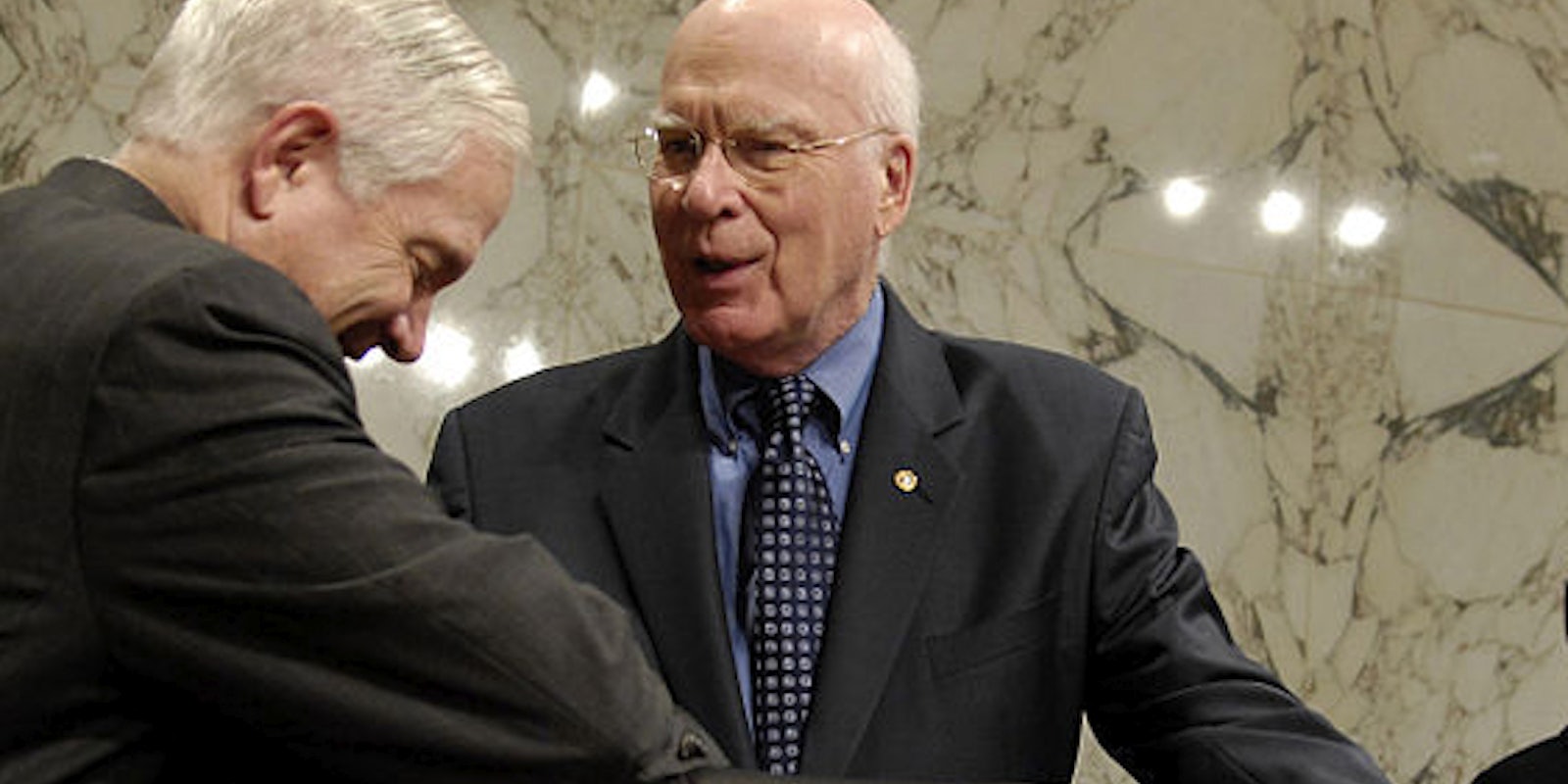An instantly unpopular bill that now appears not set to destroy any meaningful protections you have from the government tracking your online life is expected to go before Congress on Nov. 27.
The confusion hinges around Sen. Patrick Leahy (D-Vt.), likely the world’s most privileged Batman fan, who in January had already established himself as the biggest Internet villain in the Senate after he introduced the notorious Protect IP Act (PIPA). PIPA, alongside its sister bill, the Stop Online Piracy Act (SOPA), was defeated in January after a massive, popular strike against it.
Back in June 2011, Leahy announced a bill that could have given him a very different reputation: an update to 1986’s Electronic Communications Privacy Act (ECPA). In conjunction with 2001’s Patriot Act, the ECPA, a law that’s ancient by computer standards, lets federal law enforcement track users’ emails without a warrant. (Even worse, the government has recently rapidly increased its email spying in recent years.) But, Leahy proposed, this new amendment would make it necessary for any government body to get a warrant to track your emails.
But now it appears that either public outcry shamed its author into pulling its privacy protections, or maybe bad reporting led some to cry wolf. Either way, things got tricky.
On Tuesday morning, CNet’s Declan McCullagh, who had previously written about the ECPA, reported that Leahy had bowed to pressure from law enforcement and the bill now not only let the government search your email without a warrant, it would take privacy protections significantly further in the other direction: Every American’s email, Google Docs files, and social media accounts were fair game, too.
McCullagh didn’t name his source, though he did cite “Senate Judiciary aides” in a tweet.
But Forbes’s Kashmir Hill contacted Leahy’s office, and was explicitly told the claim that Leahy’s bill had removed the warranty restrictions was simply “wrong.” Moreover, another unnamed source told Hill that the ugly, warrant-stripping draft of the bill that McCullagh had written about was actually one proposed by Chuck Grassley (R-Iowa), and that Leahy would never have taken it seriously.
McCullagh has countered by speculating that those remarks are simply Leahy covering up after seeing the backlash to his most recent proposal. Leahy’s office even posted a rebuttal on his official website:
The rumors about warrant exceptions being added to ECPA are incorrect. Many have come forward with ideas for discussion before markup resumes on my bill to strengthen privacy protections under ECPA […] One of them, having to do with a warrant exception, is one that I have not supported and do not support. The whole thrust of my bill is to remedy the erosion of the public’s privacy rights under the rapid advances of technology that we have seen since ECPA was first enacted thirty years ago. In particular, my proposal would require search warrants for government access to email stored by third-party service providers – something that of course was not contemplated three decades ago.
It might never be clear what Leahy’s true intentions were with warrant provisions to the ECPA, but at least now he’s reaffirmed his support for them, and just before the bill will go before the Senate.
Or maybe Leahy secretly hates due process and was called out just in time.
Photo via Wikimedia Commons


